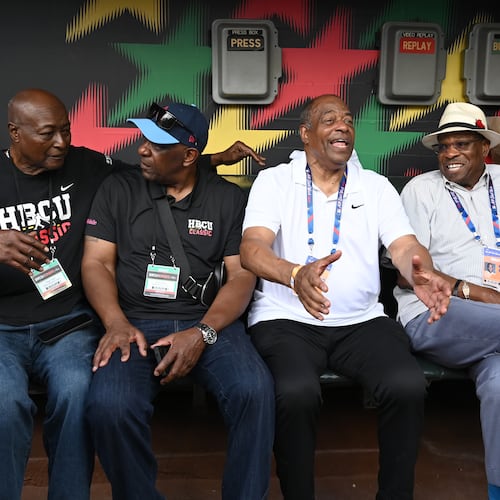Atlantans are still digesting news the Atlanta Braves plan to relocate from Turner Field to Cobb County when its lease expires in 2016, ending a 50-year run in the state’s capitol city.
The first question many asked was the most simple: What went wrong?
Braves officials declined to comment on the negotiations they’ve had with city officials, but we talked to Hans Utz, Atlanta’s deputy chief operating officer, about what led to the Braves’ stunning announcement. He’s primarily managed talks with the Braves on behalf of the city.
Members of Mayor Kasim Reed’s team have been in active negotiations over the team’s lease renewal and redevelopment plans for nearly 18 months, he said.
When they learned late last week the team made plans to relocate, city officials were still weighing a 16-point proposal the team submitted in September at the city’s behest, including requests for $100 million in city funds for infrastructure improvements and a guaranteed continued revenue stream from future development, he said.
“We didn’t let the Braves walk,” he said. “They came to us with a deal in late September that we were in the midst of vetting.”
Utz rebuffed reported complaints city officials failed to respond to that proposal. The administration believed it had until mid-November to respond to the latest request.
They were stunned last week when the Braves notified them of their decision to move to Cobb.
“We were operating under the good faith assumption they wanted $100 million (and were) suddenly given 48 hours to respond to a $450 million deal,” he said.
By Utz’s account, it’s the latest and most dramatic turn in what have been tumultuous negotiations between city officials and the Braves.
Talks over the redevelopment plans around Turner Field stalled earlier this year because the Braves wanted to engage on both sides of the process — outlining terms of the request for proposal yet also applying to win the bid — a role city officials said then was a conflict of interest, he said.
The Braves, for their part, have a keen interest in seeing both the downtrodden communities surrounding their home base improved and more amenities for fans.
Utz said city officials were still devising a way to meet the requests made in the September proposal, namely the $100 million for the team to make upgrades to the stadium.
The city cannot commit hotel-motel taxes to the project as those funds were authorized by the state solely for the future Falcons stadium, he said, which will be owned by the state and operated by the football team.
“People say ‘Why would you work to keep the Falcons around, and not the Braves?” he said.
The city put $200 million in hotel-motel taxes for a $1.2 billion stadium. “That’s a 5 to 1 return.”
Money for upgrades to Turner Field would have to come from another source of city revenue, funds that otherwise would go to infrastructure problems such as sidewalk repair, he said. City officials are already trying to solve nearly a $1 billion backlog in infrastructure needs.
Utz said he doesn’t necessarily believe the Braves left the city because of a bad deal, but are moving to Cobb for a better one.
“No one blames the Braves for liking the Cobb County deal,” he said. “…But they surprised us by dropping it in our laps at this last second. I’m not sure what else we could have done.”
The deputy COO indicated city officials have found a silver lining in what is arguably one of the worst losses for Reed’s administration yet.
“You still have 60 acres of highly valuable land right now downtown,” he said. “You could easily see an Atlantic Station-type development with mixed income and mixed density.”
Utz said while the Braves’ departure is a loss, it’s not necessarily a death knell to development there.
“I don’t think having the Braves there or not having the Braves there changes conversation about redevelopment,” he said. “It likely changes the style and parameter of that redevelopment.”
About the Author
Keep Reading
The Latest
Featured

